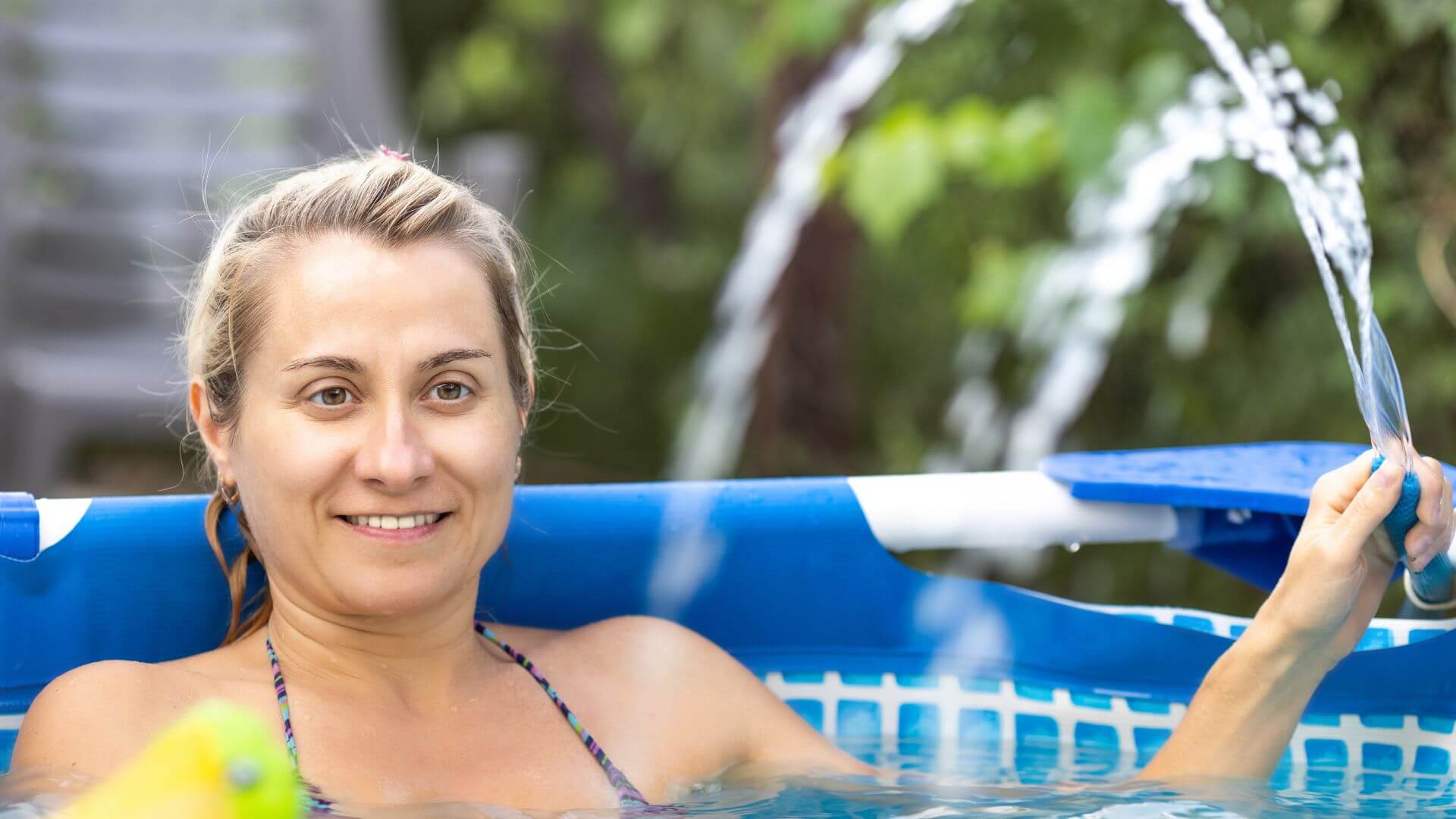
Everyone has their preference when it comes to running pool pumps. People have differing opinions on operating their swimming pool pump.
Some pool owners prefer to run the pool pump when people are in it so that they can get rid of the contaminants that people introduce into the pool when they swim.
This might make a lot of sense. However, does running the pool pump this way keeps the water clean and flowing well?
If you want to keep the pump running during a swimming session you will have to consider a couple of factors like the type of the filtration system, variable speed pump, turnover rate, energy savings, water features like the waterfall effect, and change in power consumption. For example, if you run a filter pump for consecutive hours during peak hours at full turnover, then expect to spend more money on the electric bill.
In this article, you'll be reading about the definite answer to this question.
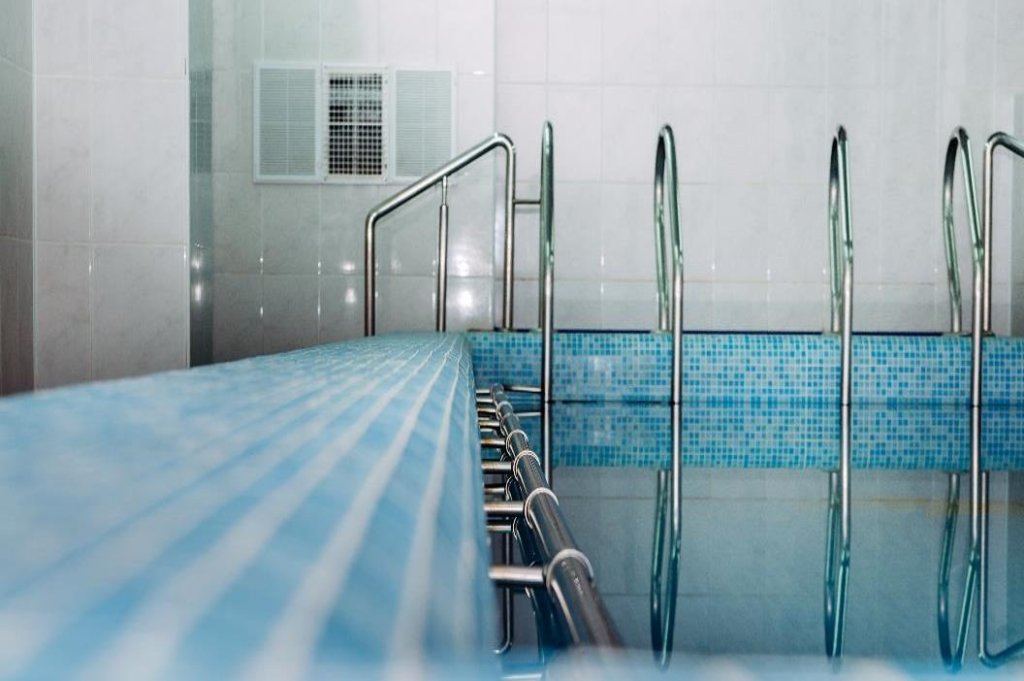
An increase in the flow of chemicals improves the proactivity of the pool water in killing germs and getting rid of bacteria. Germs do not just climb into the pool, they are mostly on the body of those who take a swim.
Running your pool pump while people are swimming is a good way to keep the pool clean and free of germs, and help the water stay protected.
This is because the number of chemicals in circulation increases when the pool water is running.
A hygienic pool is always better than stagnant pool water.
The variable speed of the filter system, when people run pool pump, and how many gallons of dirt water flow through the filtration system might affect how much money you will have to pay on your next electricity bill. Furthermore, you can save money and electricity by running your filter for at least eight hours during the night, and not when there are swimmers in the pool. You have to run for at least eight hours because that’s the time necessary to fully clear out the debris during one turnover. When you are running your filter, if you would also like to do some pool cleaning by adding chemicals or a certain amount of other additives, then it may be hazardous to the people in the pool, and they could experience pool shock. For further questions, keep reading below.
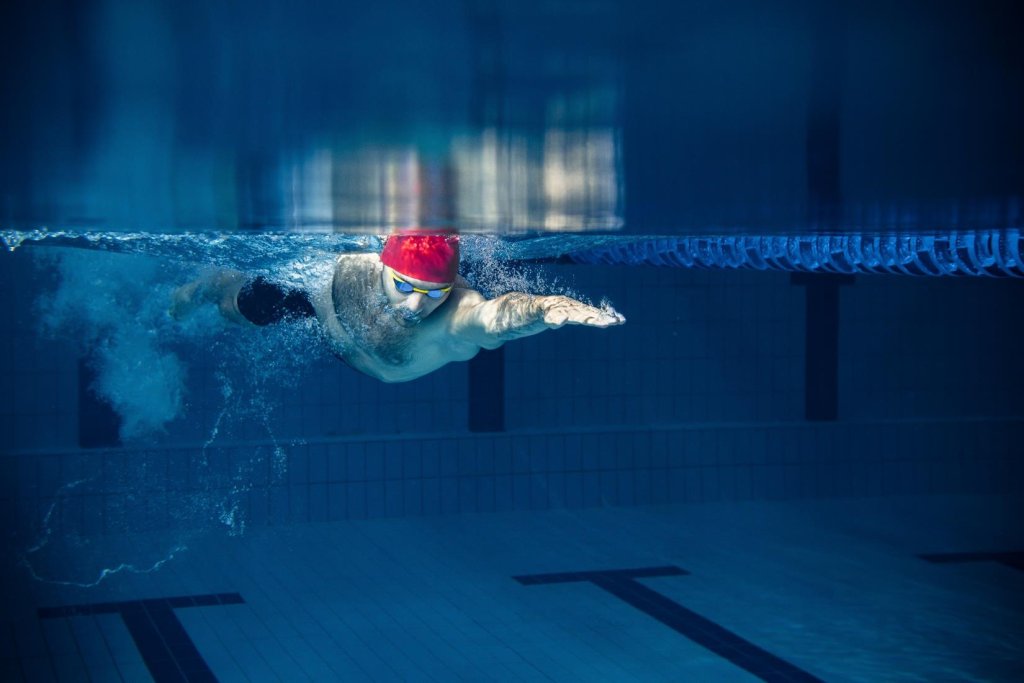
Look at it from this angle. When you run your pool pump, the pool pump filters and cleans the water simultaneously.
When the pool becomes busy with people in and out at the same time, bacteria, viruses, parasites, and many unwanted germs including hair become a constant phenomenon in the swimming pool. The pool's water can also be contaminated by any debris, dirt, and trash that people bring in.
If you want to stay hygienic, then you need to run the pool pump while lots of people are swimming in the pool. It is better to keep your own swimming pool clean, especially if people are in it.
Moreover, it is a must for pool maintenance to run a swimming pool pump this way. Even for an Intex pool, it's necessary to run the pool pump.
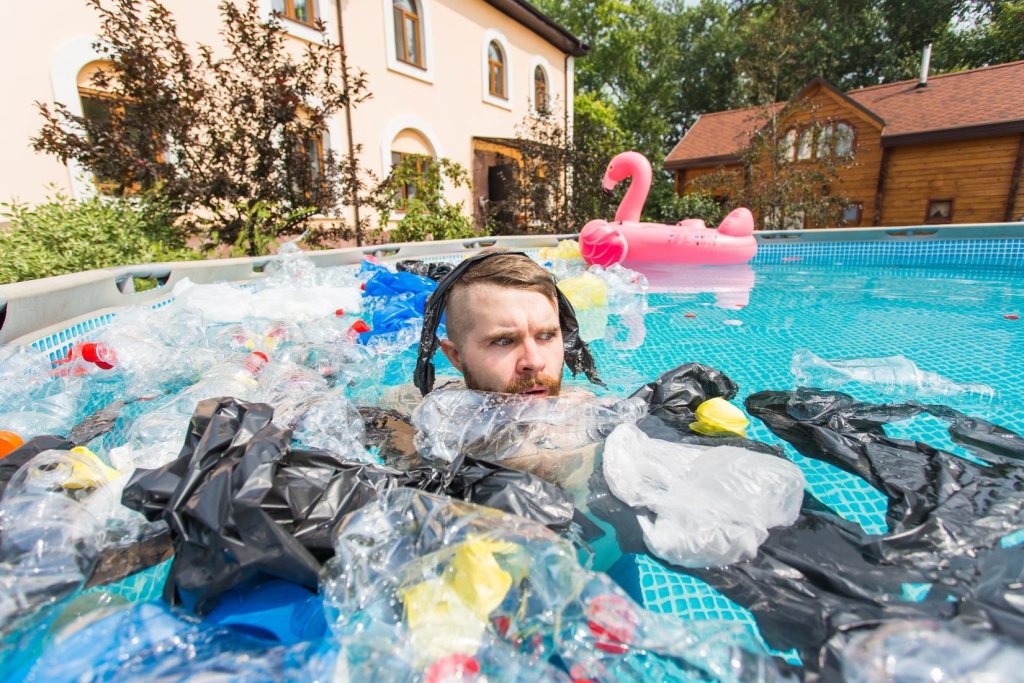
Many pool owners don't know what lurks inside the pool's volume. Swimming pool germs fall into three categories: parasites, viruses, and bacteria. Each of these germs can cause several human diseases ranging from vomiting, nausea, diarrhea, and stomach cramps, and some can cause even worse damage. Learn more about these possible sicknesses from them.
Some germs spread via skin-to-skin transmission, and are almost impossible to know they are there. Once infected it can spread to other people. Transmission through the fecal matter of unhygienic people is also not uncommon.
People have some fecal matter on their bottom most of the time which is exactly what these germs need to survive. These unclean particles make the hosts sickly.
Germs that are found in the swimming pool do not get there on their own. They depend on swimmers getting in and out of the pool to put them in there. It means these germs can be anywhere on your body ranging from your hands to your swimming trunks!
For instance, if you dive into the water with breaststroke and swallow some of the contaminated water in the process, the germs in the water transfer themselves to your gastrointestinal tract. There, they multiply and continue to live there causing severe harm and damage to your body.
That's why it's crucial to keep your pool's water clean.
Moreover, you shouldn't reuse old water. Always make sure you have enough water and observe the water moves.

Running the pool pump while swimming will not reduce the frequency of pee in the pool, or the fecal matter on people's buttocks. It doesn't stop you from swallowing the pool water either. But what it does do is clean.
Most viruses, contaminants, parasites, and every other factor that falls under the term 'germs' can be controlled by regularly disinfecting the pool water. Due to this, it is important to not just run the pool pump alone, a very good ally in such cases as this is chlorine.
Most pool-related gastrointestinal infections are a result of two single-celled parasites: Giardia and Cryptosporidium. They are also difficult to clean even when you regularly treat your pool water with chlorine.
Most pool pumps insure that the chlorine circulates round and long enough in the water, which is a key step in cleaning pools.
Cryptosporidium and Giardia are highly infectious parasites. You do not have to take in much of the pool water to become infected either. About 37 milliliters which are equal to tablespoons is enough to make you sick once the water contains any of these parasites. So it's vital to keep a swimming pool pump running.
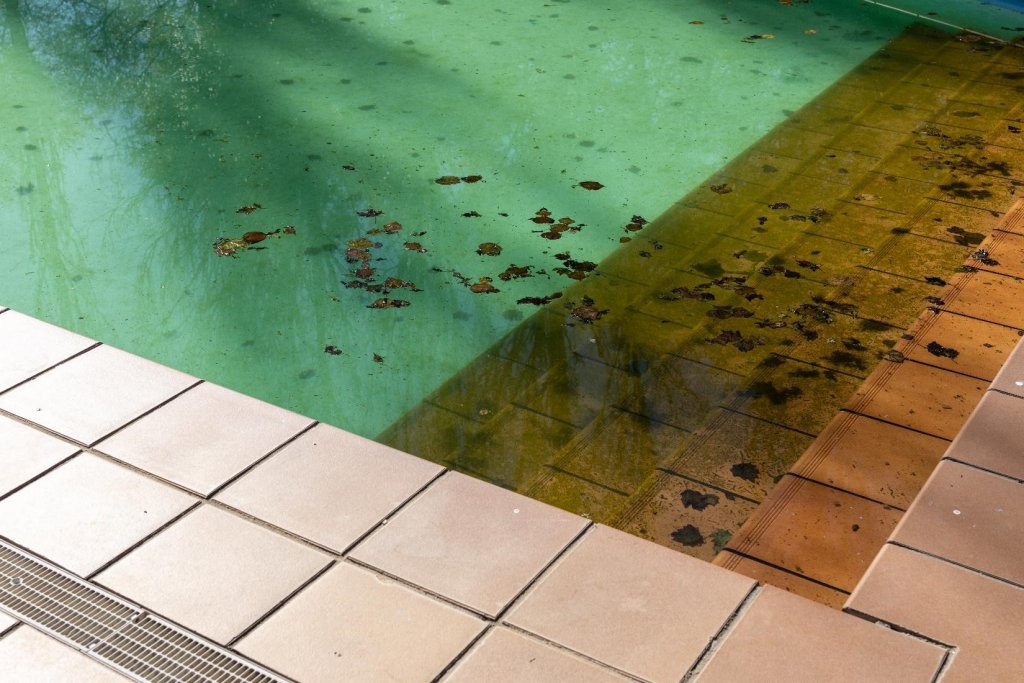
Chlorine will get rid of all pool germs if the proper amount is introduced into the water. However, these germs are stronger than each other so they take different times to die. It's important to know them.
E. Coli will die in less than one minute after chlorine has been introduced into the water.
Hepatitis A is much stronger than E. Coli and so does not die immediately. It takes about fifteen to twenty minutes to completely get rid of this germ.
Giardia is quite a strong germ and can last up to an hour in the pool after chlorine has been introduced into the water.
Cryptosporidium is much stronger than all of the above-listed germs put together and will take as much as ten days to die even after continuous chlorination and pool pump running.
There are however other ways in which you can keep your pool clean and free of germs.
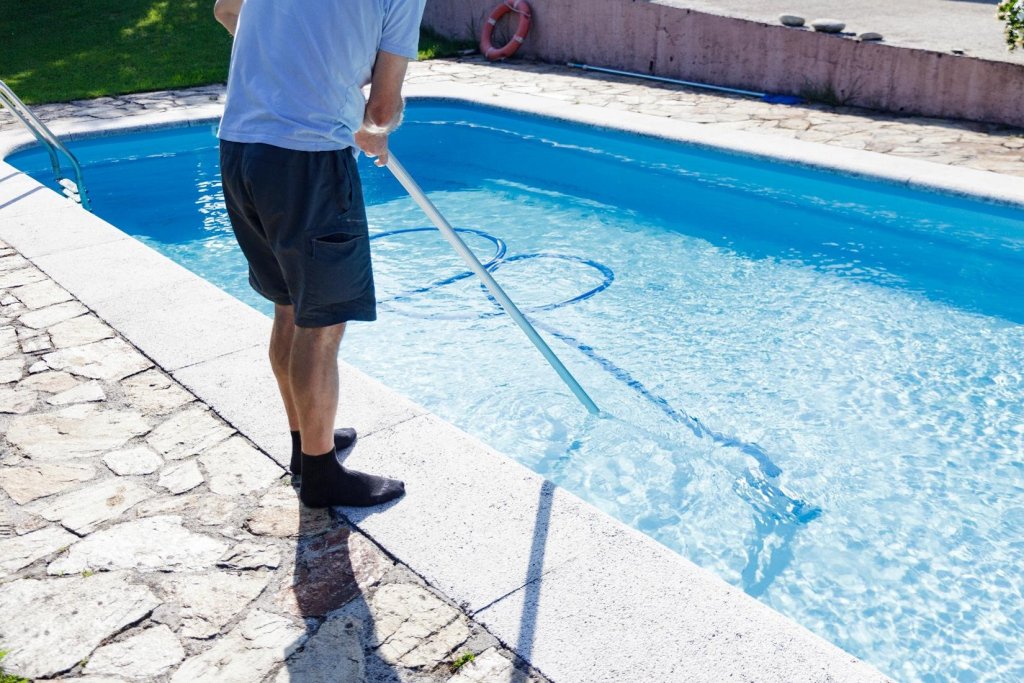
Keep out of the pool if you are suffering from diarrhea or you have just recently suffered from an episode. This is to avoid passing germs into the pool through fecal matter and infecting other people with diarrhea.
Let your kids go to the toilet frequently. If they are swimming, ask them to leave the pool from time to time to take a pee. This will prevent them from peeing into the water.
Encourage your family members and those around you to take a shower or bath before getting into the pool.
Ensure that your babies get their bottoms padded with swim nappies. Also, remember to change those swim nappies often just in case the babies pee or poo in them.
Chlorine is added to the water to kill germs. If used properly, free It can kill most germs within a few minutes.
Usually, it's recommended that water pH 7.2–7.8 and chlorine concentration be at least 1 ppm in pools. Furthermore, it's crucial chlorine be operated with a pool pump, as it won't clean the germs it is not dispersed. Additionally, the concentration will vary per pool size.
One of the major causes of chlorine depletion in your pool is the sun. The water that flows around in the pool helps in protecting the chlorine from getting burnt out as a result of the hot sun.
If you decide to run your pool when it is less sunny or during nighttime, you give the sun more power to attack all the chlorine that is standing still in your pool because it has not been properly mixed in the water. This will cause algae to breed faster than usual.
It is better to keep your pool pump running while swimming.
It will help ensure that your pool stays clean, healthy, and hygienic while you or other people are using it.
Furthermore, flowing water is always better than stagnant water either for swimming. Other practices to help your swimming pool water stay clean have also been discussed in the above article. In other words, make sure the pump runs!